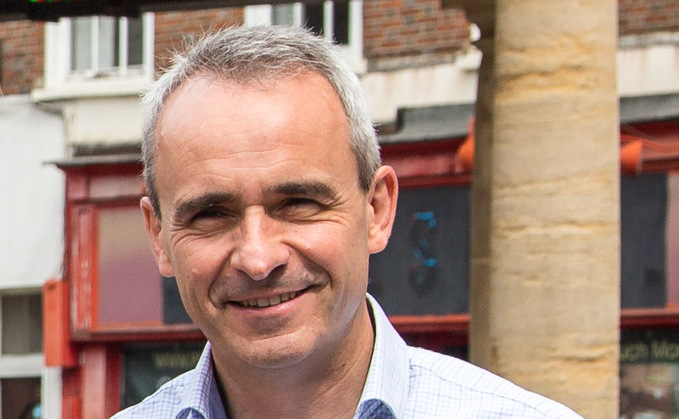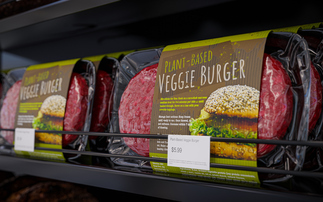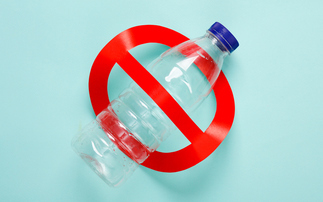
Credit: Resonates
The path to net zero is paved by the hard work of businesses in the green transition sector. Chris Dace, director at Resonates, outlines the challenges to these businesses – and how strategic communications are crucial for overcoming them.
We really are on the way to net zero. No longer a distant promise, the way we think about transportation, energy, and urban planning is fundamentally changing.
September 2025 was the month that electric vehicles (EVs) comprised the majority of new car registrations in the UK, and electric van volumes reached a new high. More than 12,000 new public chargers have already been installed this year, bringing the total to 84,000 operational charging points. More than 50 per cent of electricity was generated from renewable sources in the second quarter of 2025. And approximately 480,000 (or three per cent) of UK homes are heated from heat networks, with government targets set to make that 20 per cent by 2050.
At the heart of this transformation are the businesses driving innovation across the net zero ecosystem: clean energy providers, EV and charging infrastructure businesses, clean tech companies developing new hardware or software – and more besides. But as the sector matures and competition intensifies, it can be hard for these businesses to manage an increasingly complex web of communication challenges. And this can make or break a growth trajectory.
The weight of the net zero transition on businesses
Climate change demands urgent action across all sectors of our economy. Under the government's target for clean power by 2030, the carbon intensity of electricity generation should fall by another two-thirds by the end of the decade. The challenge is immense but achievable – the increase we've already achieved in renewable energy generation demonstrates that transformation at scale is possible.
There are compelling commercial factors too. A growing environmental consciousness across consumers and businesses is driving the demand for products, services and technologies that meet clean objectives, but also deliver performance, reliability and value for money. A recent YouGov poll revealed that nearly 80 per cent of Britons support investing their pensions in renewable energy – including over half of Reform voters. This rising environmental awareness influences where people spend, and ultimately helps shape brand value.
Government policy is a catalyst for change, with commitments spanning transport electrification, heat pump deployment, renewable energy expansion and building efficiency standards.
And investor expectations have evolved dramatically. Environmental, social and governance (ESG) considerations are now central evaluation criteria, not a nice-to-have. Businesses need to demonstrate not just technological capability, or the ability to scale or navigate regulatory complexity, but to do all these following environmental and sustainable principles.
The role of strategic communications
In this complex landscape, strategic communications is emerging as a differentiator on the path to net zero. Strong messaging helps businesses stand out in a market that is both crowded and loud, where breakthrough technologies can be overshadowed by better-marketed competitors, and where stakeholder confidence can make the difference between securing crucial partnerships and being overlooked.
Building credibility and thought leadership in this sector helps businesses establish themselves as reliable long-term partners – positioning that becomes increasingly important as the sector matures. Buyers are becoming more discerning in their selection of partners and suppliers, and investors face an increasing array of investment opportunities.
The businesses that are succeeding are those that can articulate not just what they do, but why it matters, and how it fits into the broader transformation of transport and energy systems.
Proof in practice: Accelerating growth for a cleantech startup
One of our clients, Latent Drive is a great example of how communication delivers results. A startup in the green hydrogen space, the company has developed an innovative, proven technology for efficient gas production from seawater. It offers the ability to co-locate hydrogen production on wind farms, reducing cable costs, and helping avoid curtailment at times of low demand or high production. Ultimately, its technology drives down the cost of green hydrogen.
The Latent Drive team recognised that to get further investment, the business needed the right exposure to the right audiences. We supported them to nail down a brand proposition that would resonate, then identified opportunities to gain them media exposure, running a three-month public relations sprint to raise the company's profile with investors through a campaign of news releases and thought-leadership content.
Storytelling matters – in this case showing that Latent Drive isn't a tech development hub, but a valuable contributor to the broader net zero transition – but you also need deep relationships if you want to secure earned coverage in specialised media. Rather than pursuing broad awareness, the focus here was on building credibility within the specific communities that mattered most to the client's business objectives.
Moving forward, and navigating emerging complexities
Our work with Latent Drive is a great example of the value of expert communications. The campaign results exceeded expectations, with significant earned coverage reaching hundreds of thousands of people in their target demographic.
But we see the same thing across our whole customer base: the most successful companies are those who go beyond product-focused communications to embrace strategic stories, stakeholder education, and thought-leadership positioning. It makes all the difference between leading the transition and being left behind by it.
Chris Dace is director at Resonates.
Find out more about Resonates, PR and marketing for innovators, at www.resonates.com
This article is sponsored by Resonates.







